News
Exploring the Versatility and Efficiency of Inverters: A Deep Dive into YUCOO’s Inverter Solutions
Click: 740 Date: 12/05/2023 1::56::28 PM
Exploring the Versatility and Efficiency of Inverters: A Deep Dive into YUCOO's Inverter Solutions
Understanding Different Types of Inverters: From Solar to Automotive
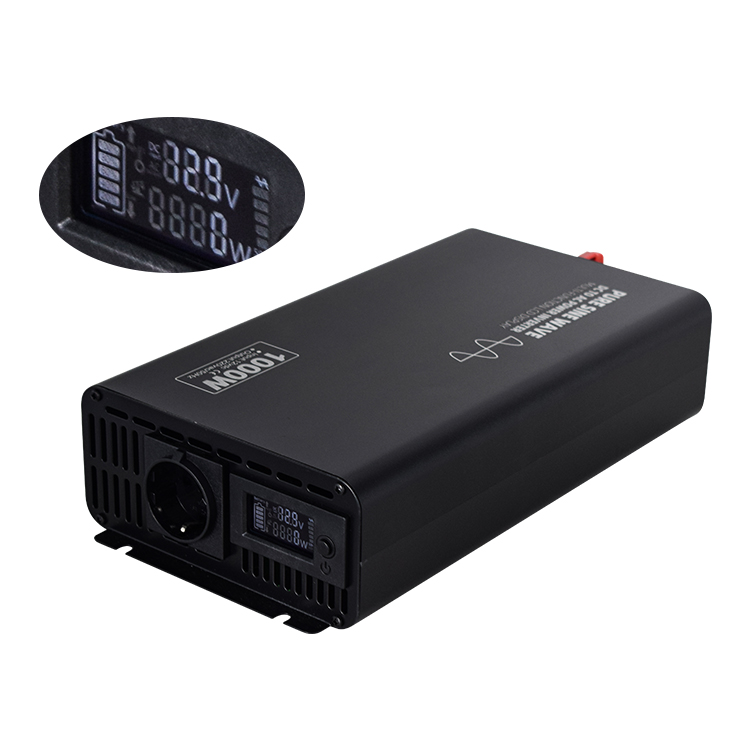
Solar Inverters: Solar inverters are a crucial component in any solar power system. They convert the variable direct current (DC) output of a photovoltaic (PV) solar panel into alternating current (AC), which can be fed into a commercial electrical grid or used by a local, off-grid electrical network. Solar inverters also ensure the solar system's optimal performance and safety.
Wind Inverters: Wind inverters, similar to solar inverters, convert the DC electricity generated by wind turbines into AC electricity. They are specifically designed to handle the variable and fluctuating nature of the electricity generated by wind power.
Industrial Inverters: Industrial inverters are used in various industries to convert DC power (often from batteries or fuel cells) into AC power, which is needed for most types of industrial equipment. These inverters are designed to be robust and reliable, capable of withstanding harsh industrial environments.
Marine Inverters: Marine inverters are used on boats and ships to convert the DC power from the vessel's battery into AC power for use with appliances and other onboard equipment. They are specially designed to be resistant to moisture and corrosion, which are common in marine environments.
Automotive Inverters: Automotive inverters are used in electric vehicles (EVs) to convert the DC power from the vehicle's battery into AC power. This AC power is used to drive the electric motor and other accessories in the vehicle. Automotive inverters are compact, efficient, and designed to withstand the vibrations and temperature variations inside a vehicle.
Each of these inverters is uniquely crafted to meet the demands of their respective fields, ensuring they function optimally under specific conditions. Whether it's handling the fluctuating power output in wind inverters or resisting corrosive environments in marine inverters, these devices are tailored to their specific needs.
The Evolution of Inverter Technology and Its Efficiency
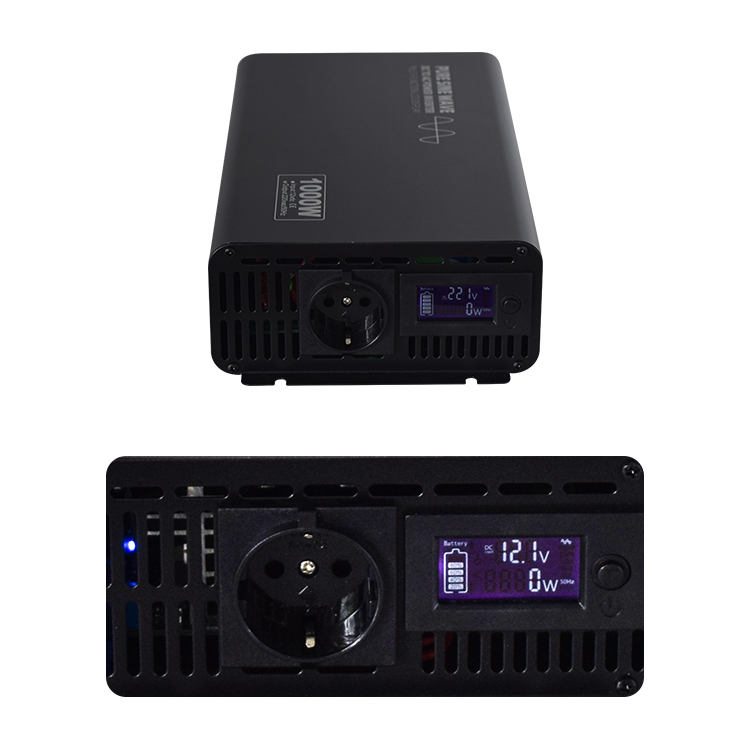
The journey of inverter technology has been marked by continuous improvements aimed at enhancing efficiency and reliability. Initially, inverters were relatively large and inefficient, but technological advancements have led to the development of smaller, more efficient, and more reliable units.
Early Stages: In the early stages, inverter technology was based on electromechanical systems that used motors and generators or switches. These inverters were bulky and had low efficiency.
Introduction of Electronic Inverters: The introduction of electronic inverters brought about a significant improvement in efficiency. These inverters used vacuum tubes or solid-state devices like transistors to convert DC to AC. They were more reliable, smaller, and more efficient than their electromechanical counterparts.
Microprocessor Era: The advent of microprocessors and digital technology revolutionized inverter technology. Microprocessors allowed for precise control of the inverter output, improving both the quality of the AC output and the overall efficiency of the inverter. This era also saw the development of different types of inverters like pure sine wave and modified sine wave inverters.
Modern Inverters: Modern inverters have benefited from advancements in semiconductor technology, leading to the development of power inverters that are compact, yet capable of handling high power levels. Today, we have inverters that can convert power with efficiencies above 90%. Modern inverters also come with advanced features like MPPT (Maximum Power Point Tracking) for solar inverters, which further increases their efficiency by optimizing the power output from solar panels.
Future of Inverter Technology: The future of inverter technology lies in further improving efficiency, reducing size, and integrating smart features. Developments in materials science, such as the use of wide-bandgap semiconductors like Silicon Carbide (SiC) and Gallium Nitride (GaN), promise to deliver inverters that are even more efficient, smaller, and capable of operating at higher temperatures.
Thus, the evolution of inverter technology has been a story of continuous improvement, with a strong focus on enhancing efficiency and reliability. As technology continues to advance, we can expect these trends to continue, leading to even more efficient and reliable inverters in the future.
YUCOO: A Leading Manufacturer in the Inverter Industry
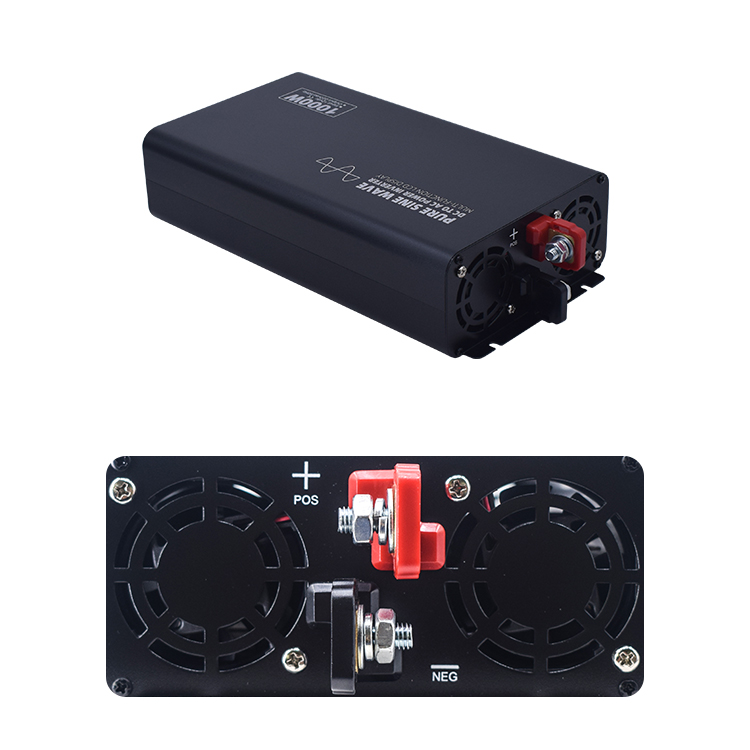
YUCOO: A Pioneer in the Inverter Industry With a rich history spanning over 20 years, YUCOO has established itself as a trusted and leading manufacturer in the inverter industry. The company's longevity is a testament to its commitment to quality, innovation, and customer satisfaction. YUCOO's expertise is recognized globally, and its products are utilized in various applications worldwide.
YUCOO's Diverse Range of Inverter Products YUCOO offers a diverse range of inverter products, catering to a wide array of needs. Its portfolio includes inverters for various sectors like solar, wind, industrial, marine, and automotive applications. This extensive product range allows YUCOO to serve a wide variety of customers, each with unique power conversion requirements.
Solar and Wind Inverters In the renewable energy sector, YUCOO's solar and wind inverters play a crucial role. They efficiently convert the DC power generated from solar panels and wind turbines into usable AC power, contributing to the global shift towards sustainable energy.
Industrial, Marine, and Automotive Inverters For the industrial, marine, and automotive sectors, YUCOO offers robust and reliable inverters designed to withstand challenging conditions. Industrial inverters are built for durability, marine inverters for resistance against moisture and corrosion, and automotive inverters for compactness and efficiency.
Innovation and Efficiency YUCOO's focus on innovation is evident in its product line. The company invests heavily in research and development, continually seeking ways to increase the efficiency and reliability of its inverters. This commitment to innovation has resulted in products known for their superior performance and longevity.
Customer Satisfaction Lastly, YUCOO places a high priority on customer satisfaction. The company not only provides high-quality products but also ensures excellent customer service. YUCOO's team is known for its technical expertise and readiness to assist customers with their inverter needs.
In conclusion, YUCOO's extensive experience, diverse product range, commitment to innovation, and focus on customer satisfaction have earned it a prominent position in the inverter industry. With its continued efforts, YUCOO is set to remain a leading player in this field.
Inverter Market Trends and the Role of YUCOO
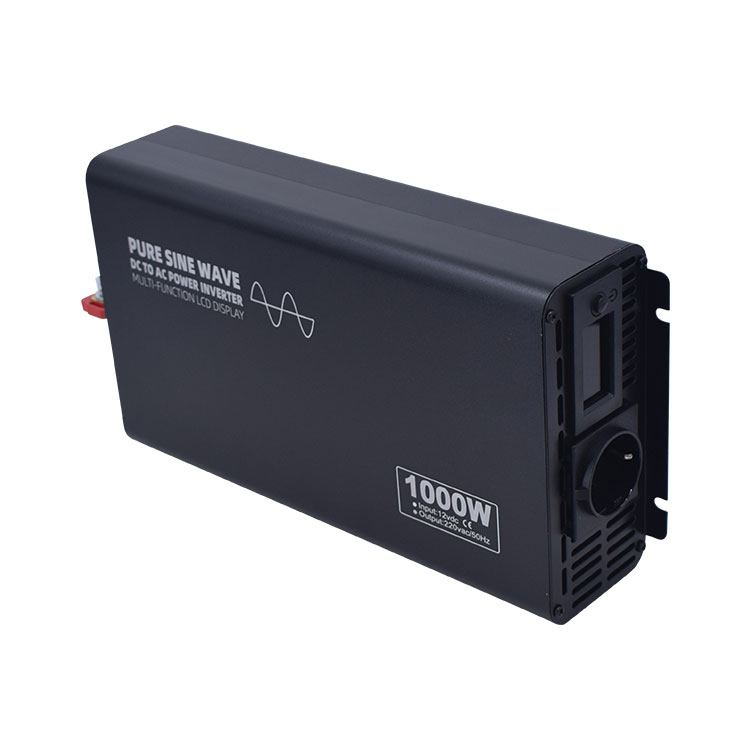
Current Trends in the Inverter Market:
Growth of Renewable Energy: The rise of renewable energy sources like solar and wind power is driving the demand for inverters. As more homes and businesses opt for sustainable energy solutions, the need for high-quality inverters to convert and manage this power is increasing.
Electric Vehicle Revolution: The surge in electric vehicle (EV) adoption is another trend positively impacting the inverter market. Automotive inverters, key components in EVs, convert DC power from the battery to AC power for the electric motor and other systems
Smart Inverters: There's a growing interest in smart inverters that can communicate with other devices, provide advanced grid support functions, and handle energy management tasks. These inverters are becoming increasingly important for integrating distributed energy resources like solar panels into the grid.
YUCOO's Role in Current Trends:
YUCOO is well-positioned to capitalize on these trends. Its wide range of inverters caters not only to traditional industrial applications but also to growing sectors like renewable energy and electric vehicles. Furthermore, YUCOO's commitment to innovation and quality aligns with the market's demand for smart and efficient inverters.
Future Trends in the Inverter Market:
Increased Efficiency and Smaller Sizes: Future trends indicate a push towards even more efficient inverters. Advancements in semiconductor technology, such as the use of wide-bandgap materials like Silicon Carbide (SiC) and Gallium Nitride (GaN), promise to deliver smaller, more efficient, and more heat-resistant inverters.
Integration of AI and IoT: The integration of Artificial Intelligence (AI) and the Internet of Things (IoT) in inverters is expected to grow. These technologies can enhance the functionality of inverters, providing better energy management, predictive maintenance, and seamless integration with other smart devices
Energy Storage: As renewable energy adoption grows, so does the need for energy storage. Inverters that can manage and optimize the use of energy storage systems will be in high demand.
YUCOO's Position in Future Trends:
With its strong focus on research and development, YUCOO is poised to keep pace with these future trends. The company's ongoing efforts to improve product efficiency and functionality, along with its ability to adapt to new technologies, make it a strong contender in the future inverter market. Whether it's integrating AI and IoT technologies or developing solutions for energy storage, YUCOO is well-prepared to meet the evolving demands of the inverter market.
Installation, Maintenance, and Safety of Inverters: The YUCOO Way
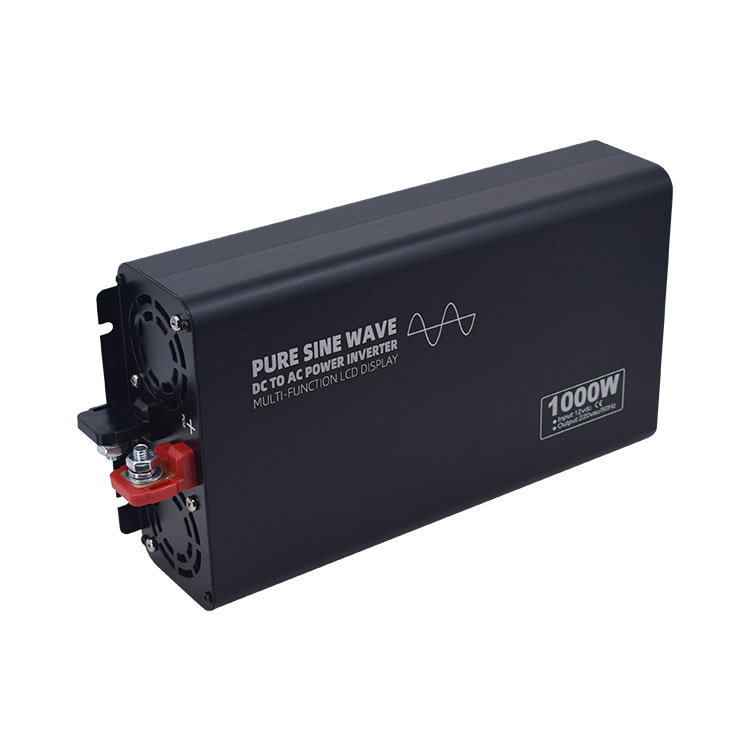
The installation process of an inverter can vary depending on its type and application. However, YUCOO ensures that their inverters are designed for easy and straightforward installation. They provide detailed manuals and guides that walk users through the installation process step by step. Furthermore, YUCOO's customer support is always ready to assist with any installation queries.
Maintenance of Inverters:
YUCOO's inverters are designed for minimal maintenance. They are built with high-quality components that ensure longevity and reliability. However, like all electronic equipment, regular checks and maintenance can help prolong the lifespan of the inverter and maintain its efficiency. This can include cleaning, checking for loose connections, and ensuring proper ventilation. YUCOO provides clear maintenance instructions with each of their inverters and offers support for any maintenance-related concerns.
Safety of Inverters:
Safety is a paramount concern when dealing with inverters. YUCOO's inverters are designed with several safety features to protect both the device and the user. These can include protections against overloads, short circuits, overheating, and reverse polarity. Additionally, YUCOO's inverters are designed to meet international safety standards, providing extra peace of mind for users.
The YUCOO Way:
YUCOO's approach to installation, maintenance, and safety demonstrates their commitment to customer satisfaction and product quality. They ensure their inverters are user-friendly, reliable, and safe to use. By providing clear instructions and excellent customer support, YUCOO makes the process of installing and maintaining an inverter as smooth as possible. Their focus on safety, both in product design and user guidance, further showcases their dedication to delivering high-quality, reliable inverter solutions.
Exploring Specific Inverter Types: Grid-Tied, Off-Grid, Hybrid, and More
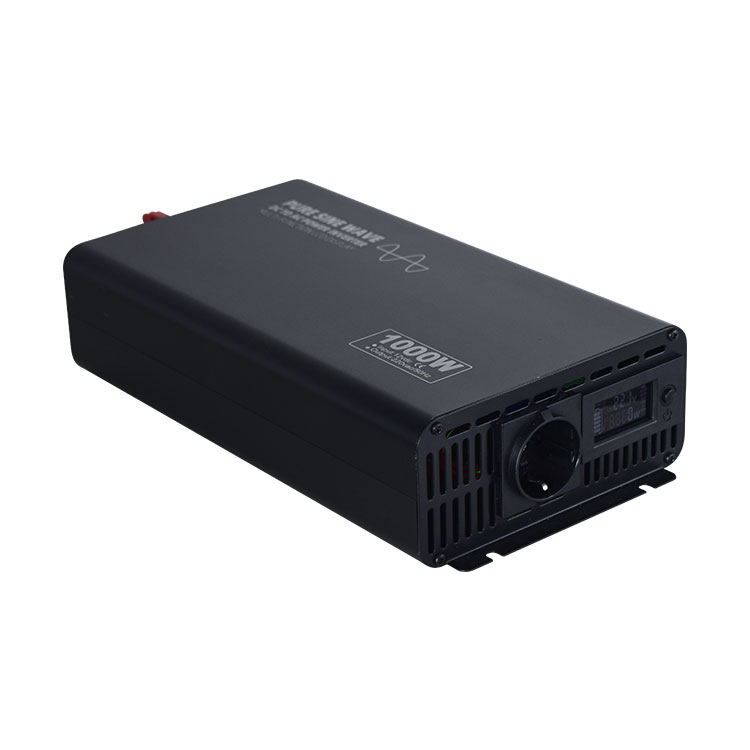
Grid-Tied Inverters: Grid-tied inverters are designed to feed power into the electrical grid. They are commonly used in solar power systems where excess power generated by solar panels is sent back to the grid. YUCOO offers a range of grid-tied inverters that are efficient, reliable, and compliant with grid regulations.
Off-Grid Inverters: Off-grid inverters are used in systems that are not connected to the electrical grid, such as remote power systems or standalone solar power systems. They convert DC power from batteries into AC power for use in appliances. YUCOO provides robust and efficient off-grid inverters suitable for a variety of off-grid applications.
Hybrid Inverters: Hybrid inverters combine the features of grid-tied and off-grid inverters. They can feed power into the grid, store excess power in batteries for later use, and provide power during grid outages. YUCOO's hybrid inverters are designed for versatility and reliability, offering a comprehensive power solution for users.
Micro Inverters: Micro inverters are a type of inverter used in solar power systems where each solar panel has its own dedicated inverter. They optimize the power output of each individual panel, improving the overall efficiency of the system. YUCOO's micro inverters are known for their high efficiency and durability.
String Inverters: String inverters are used in solar power systems where solar panels are arranged in series, forming a 'string'. These inverters convert the combined DC output of the string into AC power. YUCOO offers a variety of string inverters suitable for different system sizes and configurations.
Central Inverters: Central inverters are large inverters used in big solar power installations. They convert a large amount of DC power from many solar panels into AC power. YUCOO's central inverters are designed for high power output and reliability, making them ideal for large-scale solar power systems.
Power Inverters: Power inverters are general-purpose inverters that convert DC power from a battery into AC power for running various appliances. YUCOO's power inverters are highly efficient, reliable, and come in a range of power ratings to suit different needs.
Frequency Inverters: Frequency inverters, also known as variable frequency drives, are used to control the speed of AC motors by varying the frequency of the power supplied to the motor. YUCOO offers frequency inverters that provide precise control, high efficiency, and extended motor life.
In summary, YUCOO caters to a wide variety of inverter types, each designed for specific applications. Regardless of the type, YUCOO ensures that all their inverters meet high standards of efficiency, reliability, and safety.